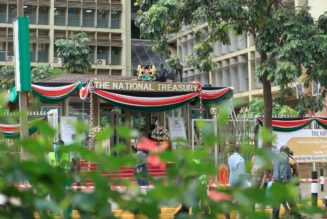Economy
Judiciary finance boss fired due to tribe, tax evasion leak back
Monday February 13 2023
Judiciary finance boss fired due to tribe, tax evasion leak back. FILE PHOTO | SHUTTERSTOCK
A former finance director at the Judiciary who got fired after pointing out that allowances for some commissioners were not being taxed has won back his job plus compensation of Sh11 million for unlawful termination of employment.
The Employment and Labour Relations court found that the termination of Benedict Abonyo Omollo’s employment by the Judicial Service Commission (JSC) in December 2015, was unfair and contrary to the law.
Justice Monica Mbaru noted that Mr Abonyo was discriminated against based on his ethnicity, saying it was ‘applied against him in zest or gusto’ by the employer.
“The fact that the claimant reported the matter (threats about his ethnicity) to his superiors and who failed to take action on the matter further smacks on his rights to be treated fairly and without discrimination which right is secured under the Constitution,” the judge said.
Read: Ex-judiciary finance employee accuses JSC of punishing her
Mr Abonyo told the court his troubles started after he alerted the JSC that the house allowance of a commissioner was not being taxed and the sitting allowance for another member was being paid outside the Judiciary payroll.
This triggered a threat from one of the JSC commissioners that members of Mr Abonyo’s tribe were dominant in the Judiciary and some of them should go.
Mr Abonyo was later charged in court over the loss of Sh80 million at the Judiciary but was later acquitted.
He told the court that the charges were trumped up, and blamed his ethnicity and outing the tax evasion for his removal.
The court heard that a JSC commissioner who is also a judge told him, “There are so many Luos in the Judiciary management and some of you must go.”
Justice Mbaru linked Mr Abonyo’s sacking to the comments made about his ethnicity. “It is therefore direct discrimination against a person where his ethnicity is applied against him in zest and gusto, particularly where the matter is stated by a public officer serving as a commissioner in the JSC,” the judge said.
The court directed the JSC — judiciary employer — to pay him damages of Sh2 million plus a withheld salary of Sh9 million during his suspension. He was earning Sh857,000 per month.
The judge further directed the JSC to re-engage him as a new employee on the same or similar terms he held in 2015. The court directed that Mr Abonyo reports to the Chief Registrar of Judiciary on February 13.
“There is no justification for such treatment established by the respondent. The court finds the claimant was unfairly treated and discriminated against by the respondent based on his ethnicity and on this findings, he is entitled to general damages,” the judge said.
Read: Appeals Court gives JSC nod to hire 26 judges
“It is evident from all the foregoing that the claimant has suffered great prejudice from the actions of the respondent and that it would only be in the fair interests of justice that this court addresses the matter and compensate him as prayed.”
The JSC said all commissioners’ allowances were subject to tax and had to be processed and paid through the commission’s payroll and if there was an oversight on the part of the finance department there was an obligation to rectify it.
The commission said Mr Abonyo could not be victimised for ensuring compliance with the law as alleged.









